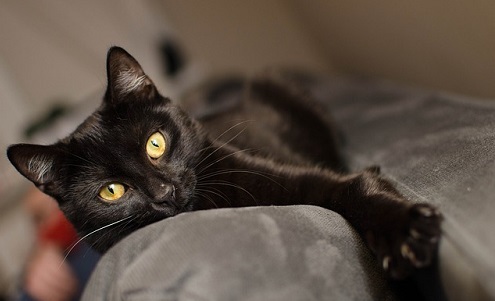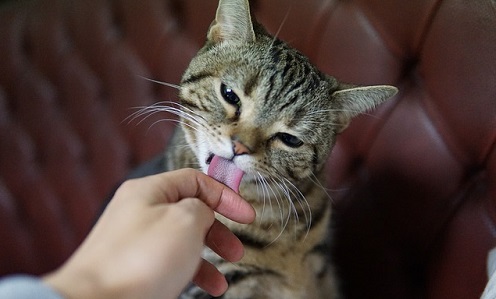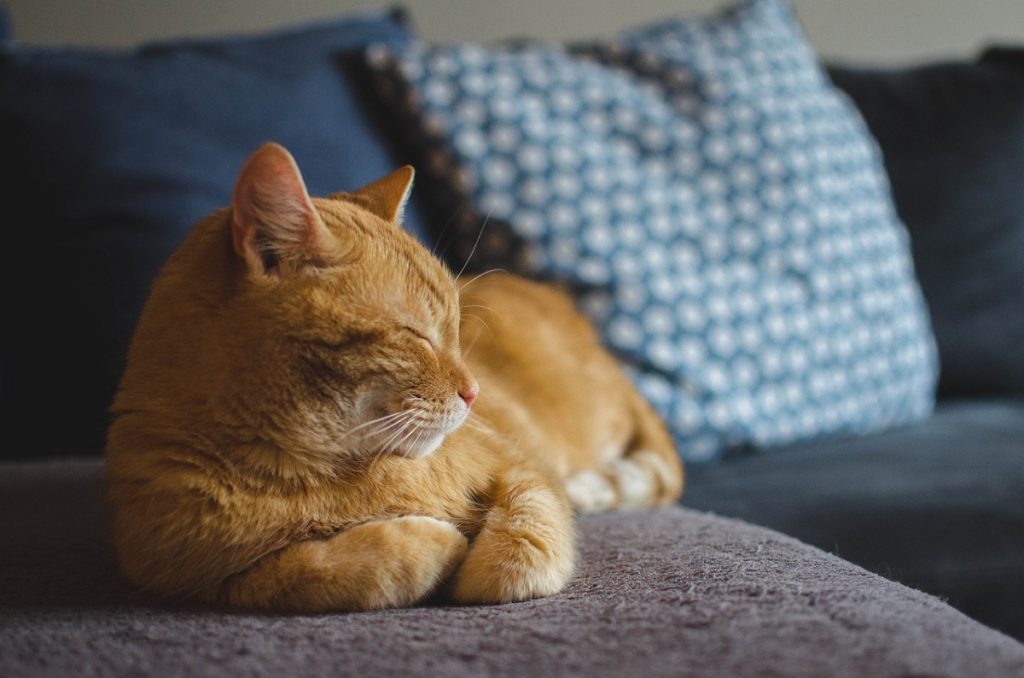What is Feline Acid Reflux?
Acid Reflux, also known as gastroesophageal reflux disease, is a relatively common ailment for cats. Sometimes referred to by its acronym GERD, acid reflux is the result of stomach acid, bile, or other forms of gastric fluid, leaving the stomach and traveling up the esophageal passage of the cat. This regurgitation of stomach fluid is uncomfortable for cats, and can even be distressingly painful in some cases.
While acid reflux is a common feline ailment, it is more regularly found in kittens and older felines. Over time, a regular amount of acid reflux can cause the tissue of the esophagus to become scared and tender. As a result, it is important to understand the causes of acid reflux, identify the associated symptoms, and engage in a long term treatment plan.
What Causes Acid Reflux in Cats?
There are several internal and external factors that can cause the onset of acid reflux in a cat. Most often, it is a combination of external stimuli and internal distress that combine to create a gastric flare up.
The Biology
Acid reflux is caused by a malfunctioning sphincter muscle which separates the base of the esophagus and top of the stomach. The malfunctioning sphincter muscles will expand periodically due to pressure from the stomach gases and increase in fluids. In turn, the malfunctioning muscle allows stomach fluid to flow up into the esophageal passage.
 The build-up of stomach fluid in the upper digestive system is referred to as gastritis, which simply indicates an inflamed or overactive stomach. Gastritis causes a build-up of liquid and gas that needs to be released. Most commonly, this build-up of fluid and gas is brought on by a diet that disagrees with the internal system of a cat. In humans, acid reflux as a result of gastritis is often attributed to foods with high acidity, but in cats, the answer is not so cut and dry.
The build-up of stomach fluid in the upper digestive system is referred to as gastritis, which simply indicates an inflamed or overactive stomach. Gastritis causes a build-up of liquid and gas that needs to be released. Most commonly, this build-up of fluid and gas is brought on by a diet that disagrees with the internal system of a cat. In humans, acid reflux as a result of gastritis is often attributed to foods with high acidity, but in cats, the answer is not so cut and dry.
The Food Hypothesis
Though several hypotheses have been provided, the only consensus amongst experts regarding what causes acid reflux in cats is the particular diet of that cat. Often a solution may be as simple as switching from wet to dry food or vice versa, but more often than not, diet plays a significant role in acid reflux treatment and prevention.
External Factors
Sometimes other medical issues and procedures can lead to acid reflux. Most commonly, anesthesia can cause a cat to begin having acid reflux if it was not administered correctly. Typically the acid reflux seen as a result of anesthesia is temporary and goes away after a short amount of time. If a cat struggles with hairball production, then acid reflux is more likely to occur. Once a cat has developed a history of regurgitation, the muscles that control regurgitation become weakened, leading to a higher risk of acid reflux.
What Are The Acid Reflux in Cats Symptoms?
The symptoms of Acid Reflux are not as apparent in cats as they might be for a human experiencing an acid reflux flare up. For cats, symptoms are often more severe, and cat owners should take special care to note if their cat is experiencing any of the following:
- Frequent regurgitation, especially within an hour of eating
- Slimy mucus and bile
- Choking
- Persistent coughing or hacking
- A change in vocal pitch
- Lack of appetite or an unwillingness to eat
- Lethargy
- Weight Loss
- Slobber and excessive drooling
- Painful swallowing, exhibited by an elongated neck and loud, aggressive attempts to swallow
The symptoms listed above can be good indicators that your cat is experiencing esophageal discomfort due to acid reflux, but it is important to remember that the only person who can diagnose your cat is a licensed vet. If your cat exhibits any of the symptoms listed above, consult your vet as quickly as possible to avoid further discomfort for your cat and to prevent potential long-term damage.
Acid Reflux in Cats Treatment
While there is no permanent solution to acid reflux, the symptoms can be subdued and forced into remission with a long-term treatment plan. Most commonly, vets will prescribe a low dose, cat-friendly, antacid to keep the acid in the stomach in check. Often this minor addition will do the trick and subdue the symptoms of acid reflux.
 Additionally, dietary restrictions can be put in place where, depending on the cat’s current food type, dry or wet food can be substituted for one another. Changes can also be made to the feeding schedule wherein smaller, more easily digestible quantities, are given to a cat in more frequent doses rather than one or two larger meals for the day.
Additionally, dietary restrictions can be put in place where, depending on the cat’s current food type, dry or wet food can be substituted for one another. Changes can also be made to the feeding schedule wherein smaller, more easily digestible quantities, are given to a cat in more frequent doses rather than one or two larger meals for the day.
To summarize, acid reflux in cats, although cumbersome, is treatable. A firm understanding of what causes acid reflux, paired with the proper identification of symptoms and a long-term treatment plan, will allow you and your veterinary professional to assist your cat in dealing with feline acid reflux.
Sources:
- Acid Reflux in Cats. (n.d.). Retrieved from https://www.petmd.com/cat/conditions/digestive/c_ct_gastroesophageal_reflux
- Wag! (2016, December 02). Acid Reflux in Cats – Symptoms, Causes, Diagnosis, Treatment, Recovery, Management, Cost. Retrieved from https://wagwalking.com/cat/condition/acid-reflux
- GERD in cats. (2018, September 19). Retrieved from https://animalwellnessmagazine.com/gerd-cats/




